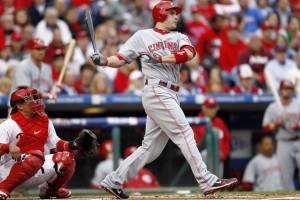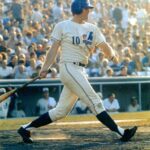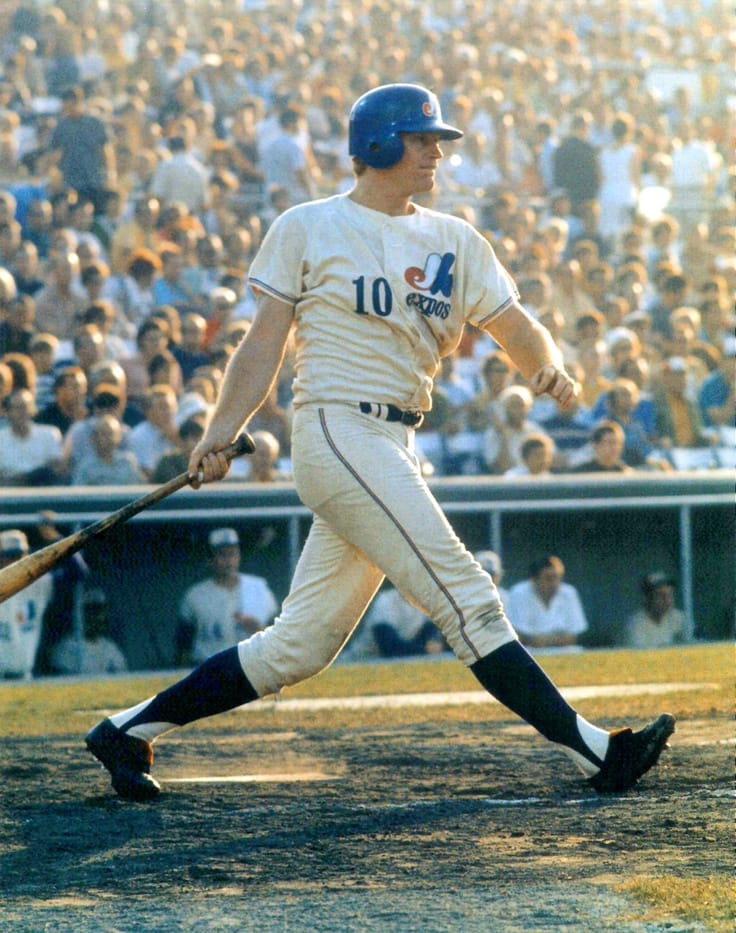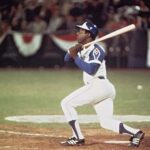Recapping MLB’s 2010 Award Winners
The 2010 Major League Baseball Award season is now history. Here is a rundown of the choices and my input on whether the right players were selected.
Rookie of the Year
National League: Buster Posey, San Francisco Giants; American League: Neftali Feliz, Texas Rangers
Based on value to teams and performance over the second half of the 2010 season it is very difficult to argue with the two picks for Rookie of the Year.
You kinda had a sense that Buster Posey was going to be an impact player for the San Francisco Giants when he was called up in late May and promptly had six hits in his first two games and posted seven multi-hit games in his first 12 games. He went on to hit .305 and serve as a major catalyst for the late season surge of the World Series Champions.
What is interesting about his selection over Jason Heyward of the Atlanta Braves is that Heyward got so much publicity early, but by mid-season you almost forgot he was a rookie. Heyward had a great rookie season with a .277 batting average, 18 home runs and 72 RBI. On a team that lost offensive power to injuries on a regular basis, he had a solid rookie season and was definitely a key reason they made the playoffs.
However, at the end of the day the choice of Posey was the right one. It is ironic that neither of the two most celebrated Atlanta Braves rookies of the last two decades, Chipper Jones and Jason Heyward received Rookie of the Year honors. Jones finished second to Hideo Nomo in 1995.
Given the sizzle and star power of the two major candidates in the National League, the American League Rookie of the Year race was basically made up of unknowns.
Texas Rangers closer Neftali Feliz definitely deserved the award with 40 saves, more than a strikeout per inning and a 2.73 ERA. Yet could anyone outside of Texas have picked him out of a lineup prior to the playoffs?
The same could be said for second place finisher Austin Jackson from Detroit. Acquired by the Tigers in the Curtis Granderson trade, Jackson played in 151 games for the Tigers and hit .293 with 103 runs scored, four home runs, 41 RBI and 27 stolen bases. But because the Tigers never contended for the playoffs, he received very little national attention.
Manager of the Year
National League: Bud Black, San Diego Padres; American League: Ron Gardenhire
Of all the postseason awards, this is the one to me where just basing it on regular season success has the greatest impact.
Had postseason performance been considered, there is no doubt that Bruce Bochy of the Giants would have been higher than third in the NL and Ron Washington would have eclipsed Ron Gardenhire in the AL.
However, because it is based only on regular season team performance, the winners were relatively predictable.
I think there was greater argument in the NL where Black did a great job making San Diego a contender, but Dusty Baker took a Cincinnati Reds squad that hadn’t posted a winning season in a decade and led them to the playoffs.
Based solely on the regular season I have no issues in the American League, but Gardenhire will probably have to have some postseason success before he is considered for the award again.
Cy Young Award
National League: Roy Halladay; American League: Felix Hernandez
The selection of Halladay as the National League Cy Young winner was unquestionably the easiest of all the postseason awards. He personified the domination expected by a Cy Young winner with a 21-10 record and 2.44 ERA for the Philadelphia Phillies.
In the American League, the award went to a pitcher who had many dominating performances, but whose team gave him little support.
Victories used to be the primary measuring stick for success of a starting pitcher, but that has changed as the game has gotten so specialized. That Felix Hernandez would claim the AL Cy Young with a 13-12 record is a great illustration of that shift.
Given his league-leading 2.27 ERA and his 232 strikeouts you can make a good argument for Hernandez, but with David Price having posted a 19-6 record with a 2.72 ERA while pitching every game under playoff-type pressure I have a hard time justifying the selection.
Most Valuable Player
National League: Joey Votto; American League Josh Hamilton
The story of Votto’s rise to MVP status in the NL is a great one. Considering that you could very easily (and justifiably) pencil Albert Pujols in as the winner every single year, it was good that Votto was able to break through to claim the award in 2010.
His overall numbers of a .324 average with 37 home runs and 113 RBI for a team that reached the playoffs were without question deserving of the award. Pujols and Carlos Gonzalez of the Colorado Rockies both had equally as impressive numbers, but Votto made so many big plays during the final months of the season that he easily out-distanced them for the award.
While there were three very deserving candidates in the National League, the choice in the American League was tougher to decipher.
The popular candidate and eventual winner was Josh Hamilton of the Texas Rangers, but I’m not sure he as much won the award as he was simply the most popular choice from a ho-hum field.
While Hamilton’s .359 batting average was the best in the AL, his 32 home runs and 100 RBI were not spectacular. The Rangers went 15-9 over the final three weeks of the season despite Hamilton being out of the lineup with injury. For my money, Vladimir Guerrero was as valuable to the success of the Rangers in 2010 as Hamilton.
Miguel Cabrera had a great statistical season and finished second in the MVP voting, but in my opinion for someone from a non-contender to win the award, they must be significantly better than everyone else and Cabrera’s numbers weren’t that much greater than others.
The player that I think got overlooked in the voting was Robinson Cano of the New York Yankees. For my money, Cano was equally as valuable to the Yankees playoff run this season as Dustin Pedroia in 2008 when he was named the MVP with far less impressive offensive statistics for the Boston Red Sox. Cano hit .319 with200 hits, 103 runs scored, 29 home runs and 109 RBI while helping the Yankees to 95 victories.
Overall, I think the selections for 2010 major award winners was pretty good, though for a couple of the awards I think the award went to the most popular, rather than the most deserving candidate.












